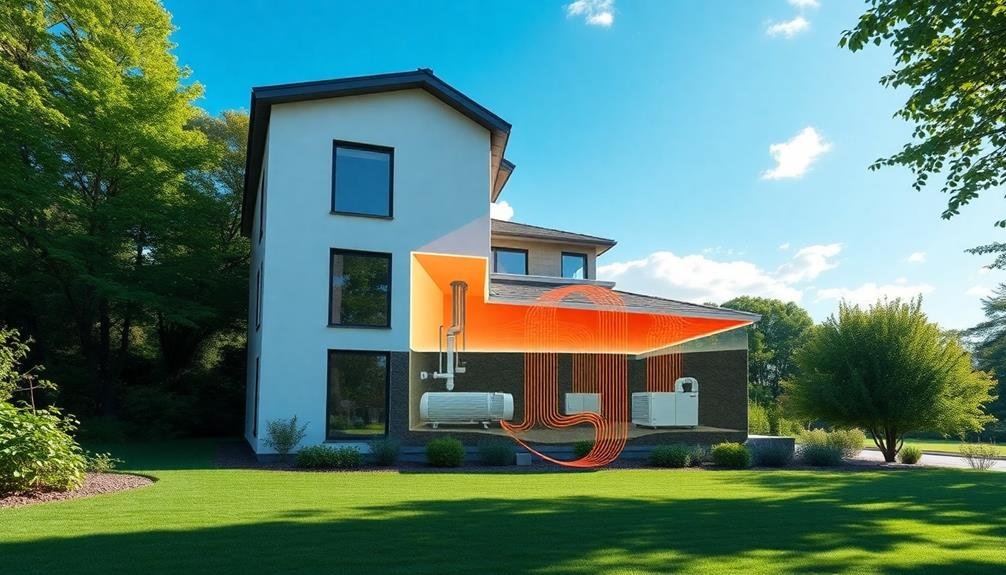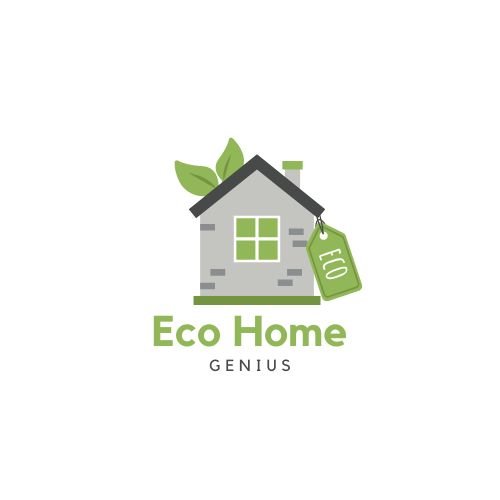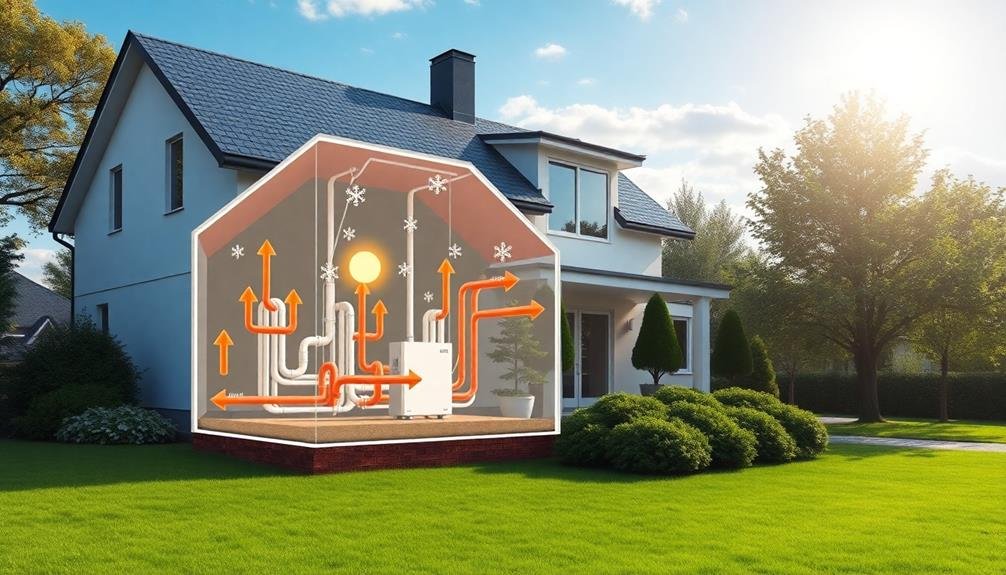Geothermal heat pump systems offer three major eco-friendly advantages for your home. First, they greatly reduce carbon emissions, cutting up to 70% compared to traditional HVAC systems. Second, they tap into a sustainable energy source, using the Earth's constant underground temperature for year-round heating and cooling. Third, they have minimal environmental impact, with low noise pollution, reduced water usage, and no direct fossil fuel combustion. These systems operate with high efficiency, using one unit of electricity to transfer up to five units of heating or cooling. Discover how this revolutionary technology can transform your home's energy profile and shrink your carbon footprint.
Reduced Carbon Emissions

In light of the growing concern over climate change, geothermal heat pump systems offer a considerable advantage through their reduced carbon emissions. When you install a geothermal system, you're choosing a heating and cooling solution that dramatically cuts your carbon footprint.
Unlike traditional HVAC systems that burn fossil fuels, geothermal pumps use the earth's constant temperature to regulate your home's climate.
You'll find that geothermal systems are incredibly efficient, using just one unit of electricity to move up to five units of heating or cooling. This efficiency translates directly to lower carbon emissions.
By switching to geothermal, you can reduce your home's carbon emissions by up to 70% compared to conventional systems. It's not just about your individual impact; if widely adopted, geothermal technology could considerably decrease our collective carbon output.
Moreover, you're not just reducing emissions during operation. Geothermal systems have a longer lifespan than traditional HVAC units, meaning less frequent replacements and reduced manufacturing emissions.
Sustainable Energy Source
Geothermal heat pump systems don't just reduce emissions; they tap into a truly sustainable energy source. They harness the Earth's constant underground temperature, which remains stable year-round, regardless of surface weather conditions. This renewable energy is virtually limitless and available 24/7, unlike solar or wind power that depend on specific weather conditions.
You'll find that geothermal systems can provide both heating and cooling for your home or building. In winter, they extract heat from the ground and transfer it indoors. During summer, the process reverses, removing heat from your space and depositing it back into the Earth. This cycle can continue indefinitely without depleting the ground's thermal energy.
The sustainability of geothermal energy is further enhanced by its low environmental impact. You're not burning fossil fuels or creating harmful byproducts. The system's components are mostly underground, minimizing visual impact and land use.
Additionally, geothermal heat pumps have a long lifespan, often lasting 20-25 years for indoor components and 50+ years for ground loops, reducing the need for frequent replacements and associated resource consumption.
Minimal Environmental Impact

Minimizing environmental impact is a hallmark of geothermal heat pump systems. You'll find that these systems have a considerably lower carbon footprint compared to traditional heating and cooling methods. They don't burn fossil fuels directly, reducing greenhouse gas emissions and air pollution. Instead, they tap into the earth's constant temperature, using minimal electricity to transfer heat.
You'll appreciate how geothermal systems preserve local ecosystems. They don't require large outdoor units that can disrupt wildlife habitats or landscaping. The underground loops are installed with minimal surface disturbance, and once in place, they're virtually invisible.
Here's a comparison of environmental impacts between geothermal and conventional systems:
| Factor | Geothermal | Conventional |
|---|---|---|
| CO2 Emissions | Very Low | High |
| Air Pollution | None | Moderate to High |
| Land Use | Minimal | Moderate |
| Noise Pollution | Negligible | Can be Considerable |
| Water Usage | Low | Can be High |
You'll also notice that geothermal systems don't use refrigerants harmful to the ozone layer. They rely on water or environmentally friendly antifreeze solutions to transfer heat. This further reduces their potential negative impact on the environment, making them a truly eco-friendly choice for your home or business.
Frequently Asked Questions
What Is the Initial Cost of Installing a Geothermal Heat Pump System?
You'll find that installing a geothermal heat pump system isn't cheap. Initial costs typically range from $10,000 to $30,000, depending on your property's size and soil conditions. However, you'll recoup this investment through long-term energy savings.
How Long Does a Geothermal Heat Pump System Typically Last?
You'll be pleased to know that geothermal heat pump systems typically last 20-25 years for indoor components and 50+ years for ground loops. With proper maintenance, you can enjoy reliable, efficient heating and cooling for decades.
Can Geothermal Heat Pumps Be Used in All Climate Zones?
You can use geothermal heat pumps in all climate zones. They're effective in both hot and cold regions, as they tap into the earth's constant temperature. However, the system's design may vary depending on your specific location and needs.
Are There Any Government Incentives for Installing Geothermal Heat Pump Systems?
Yes, you'll find various government incentives for installing geothermal heat pump systems. These often include federal tax credits, state rebates, and local grants. Check with your local energy office or visit the Database of State Incentives for Renewables & Efficiency.
How Much Space Is Required for a Geothermal Heat Pump Installation?
You'll need enough space for the heat pump unit and ground loops. Horizontal loops require a large yard, typically 1/4 to 3/4 acre. Vertical systems need less surface area but deeper drilling. Your installer will assess your property.
In Summary
You've seen how geothermal heat pump systems offer significant eco-friendly advantages. By reducing carbon emissions, tapping into a sustainable energy source, and minimizing environmental impact, you're making a smart choice for both your home and the planet. As you consider your heating and cooling options, remember that geothermal systems aren't just efficient – they're a powerful step towards a greener future. It's time to embrace this earth-friendly technology and make a positive change.





Leave a Reply